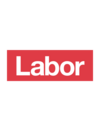Division of Higgins
| Higgins Australian House of Representatives Division | |
|---|---|
 Division of Higgins in Victoria, as of the 2022 federal election | |
| Created | 1949 |
| MP | Michelle Ananda-Rajah |
| Party | Labor |
| Namesake | H. B. Higgins |
| Electors | 107,782 (2022) |
| Area | 39 km2 (15.1 sq mi) |
| Demographic | Inner metropolitan |
The Division of Higgins is an Australian Electoral Division in Victoria for the Australian House of Representatives. The division covers 41 km2 (16 sq mi) in Melbourne's inner south-eastern suburbs. The main suburbs include Armadale, Ashburton, Carnegie, Glen Iris, Kooyong, Malvern, Malvern East, Murrumbeena, Prahran and Toorak; along with parts of Camberwell, Ormond and South Yarra. Though historically a safe conservative seat, Higgins was won by the Liberal Party by a margin of just 3.9 percent over the Labor Party at the 2019 election, the closest result in the seat’s history.[1] It then flipped to Labor in the 2022 election.[2]
Higgins is a largely white-collar electorate. According to the 2021 census, 52.4% of electors hold a Bachelor's Degree, slightly more than twice the national average.[3]
The current member for Higgins, since the 2022 federal election, is Michelle Ananda-Rajah, a member of the Australian Labor Party, and the first Labor member in the seat's history.
In 2024, the Australian Electoral Commission announced that the seat would be abolished in the Victorian federal electorate redistribution, effective from the next Australian federal election, with its electors distributed across the divisions of Melbourne, Kooyong, Hotham, Macnamara and Chisholm.[4]
Geography
[edit]Since 1984, federal electoral division boundaries in Australia have been determined at redistributions by a redistribution committee appointed by the Australian Electoral Commission. Redistributions occur for the boundaries of divisions in a particular state, and they occur every seven years, or sooner if a state's representation entitlement changes or when divisions of a state are malapportioned.[5]
History
[edit]
The division was created in 1949. Like other seats in inner-eastern Melbourne, Higgins had historically been a stronghold for the Liberal Party. It was considered a "leadership seat", in part because the seat's first two members, Harold Holt and Sir John Gorton, were Prime Ministers of Australia in the period between 1966 and 1971.
More recently, the seat was held by the longest serving Treasurer of Australia and former Deputy Leader of the Liberal Party, Peter Costello, who was a prominent member of the Howard government. Costello resigned from the seat on 19 October 2009, and was succeeded in the ensuing by-election by Kelly O'Dwyer, who would go on to become a minister in the Abbott and Turnbull governments.
O'Dwyer retired in 2019. At that election, Labor came reasonably close to winning this seat for the first time ever, with Labor's highest two-party preferred vote in the history of the seat (46.12%). Liberal candidate Katie Allen, however, saw off a challenge from barrister Fiona McLeod, despite suffering a swing of six percent, making Higgins marginal against Labor for the first time ever. Allen became the first Liberal candidate to come up short of an outright majority on the first count. High-profile Greens candidate and former Australian Rules footballer Jason Ball also contested the seat, receiving almost a quarter of the vote.
At the 2022 election, Labor took the seat for the first time. While Allen led Labor challenger Michelle Ananda-Rajah for most of the night, on the seventh count the Green candidate's preferences flowed overwhelmingly to Ananda-Rajah, allowing Ananda-Rajah to win on a swing of 4.7 percent.
Higgins is the only Division to have been held by two Prime Ministers. This occurred when Holt went missing while Prime Minister, and then-Senator Gorton used the ensuing by-election to transfer to the House. Prior to 2022, it had only been out of Liberal hands for eight months in its existence, when Gorton became an independent to protest against Malcolm Fraser's becoming Liberal leader.
The seat is one of the few to have produced two federal Treasurers; Holt and Costello served as Treasurers during their respective tenure in Higgins. Another member, Kelly O'Dwyer had a stint as Assistant Treasurer.[6]
Name
[edit]The division is named after Justice H. B. Higgins (1851–1929), who was a Member of the Victorian Legislative Assembly (1894) and president of the Carlton Football Club (1904). He was a founding Member of Australian House of Representatives, serving as the Protectionist member for Northern Melbourne and was the Attorney-General in the Watson government (1904). He went on to become a Justice of the High Court of Australia (1906–1929)
Members
[edit]| Image | Member | Party | Term | Notes | |
|---|---|---|---|---|---|

|
Harold Holt (1908–1967) |
Liberal | 10 December 1949 – 17 December 1967 |
Previously held the Division of Fawkner. Served as minister under Menzies. Served as Prime Minister from 1966 to 1967. Died in office | |

|
John Gorton (1911–2002) |
24 February 1968 – 23 May 1975 |
Previously a member of the Senate. Served as Prime Minister from 1968 to 1971. Served as minister under McMahon. Did not contest in 1975. Failed to win a Senate seat | ||
| Independent | 23 May 1975 – 11 November 1975 | ||||

|
Roger Shipton (1936–1998) |
Liberal | 13 December 1975 – 19 February 1990 |
Lost preselection and retired | |

|
Peter Costello (1957–) |
24 March 1990 – 19 October 2009 |
Served as Treasurer under Howard. Resigned to retire from politics | ||

|
Kelly O'Dwyer (1977–) |
5 December 2009 – 11 April 2019 |
Served as minister under Turnbull and Morrison. Retired | ||

|
Katie Allen (1966–) |
18 May 2019 – 21 May 2022 |
Lost seat | ||

|
Michelle Ananda-Rajah (1972–) |
Labor | 21 May 2022 – present |
Incumbent |
Election results
[edit]| Party | Candidate | Votes | % | ±% | |
|---|---|---|---|---|---|
| Liberal | Katie Allen | 38,859 | 40.69 | −5.84 | |
| Labor | Michelle Ananda-Rajah | 27,187 | 28.46 | +2.39 | |
| Greens | Sonya Semmens | 21,632 | 22.65 | −0.06 | |
| Liberal Democrats | Matthew Ford | 2,648 | 2.77 | +2.77 | |
| United Australia | Ingram Spencer | 1,917 | 2.01 | +0.84 | |
| Reason | Andrew Johnson | 1,458 | 1.53 | +1.53 | |
| Animal Justice | Alicia Walker | 1,295 | 1.36 | −0.40 | |
| Federation | Suzie Menoudakis | 515 | 0.54 | +0.54 | |
| Total formal votes | 95,511 | 97.18 | −0.31 | ||
| Informal votes | 2,774 | 2.82 | +0.31 | ||
| Turnout | 98,285 | 91.23 | −2.45 | ||
| Two-party-preferred result | |||||
| Labor | Michelle Ananda-Rajah | 49,726 | 52.06 | +4.67 | |
| Liberal | Katie Allen | 45,785 | 47.94 | −4.67 | |
| Labor gain from Liberal | Swing | +4.67 | |||

 indicates at what stage the winning candidate had over 50% of the votes and was declared the winner.
indicates at what stage the winning candidate had over 50% of the votes and was declared the winner.Graphs are unavailable due to technical issues. There is more info on Phabricator and on MediaWiki.org. |
Graphs are unavailable due to technical issues. There is more info on Phabricator and on MediaWiki.org. |
References
[edit]- ^ "Higgins (Key Seat) - Federal Electorate, Candidates, Results - ABC News". Australian Broadcasting Corporation. Archived from the original on 22 August 2021. Retrieved 22 August 2021.
- ^ "Higgins (Key Seat) - Federal Electorate, Candidates, Results". abc.net.au. Archived from the original on 27 May 2022. Retrieved 27 May 2022.
- ^ Australian Bureau of Statistics (28 June 2022). "Higgins". 2021 Census QuickStats. Retrieved 8 October 2024.
- ^ "7. Announcement of names and boundaries of federal electoral divisions in Victoria". Victorian federal redistribution. Australian Electoral Commission. 5 September 2024. The abolition of the Division of Higgins. Archived from the original on 8 October 2024. Retrieved 14 September 2024.
- ^ Muller, Damon (14 November 2017). "The process of federal redistributions: a quick guide". Parliament of Australia. Archived from the original on 23 May 2022. Retrieved 19 April 2022.
- ^ Wright, Tony (25 June 2016). "Under fire Kelly O'Dwyer scuttles Twitter joke while Peter Costello rushes to her aid". The Sydney Morning Herald. Archived from the original on 3 August 2024. Retrieved 23 October 2020.
- ^ Higgins, VIC, 2022 Tally Room, Australian Electoral Commission.
